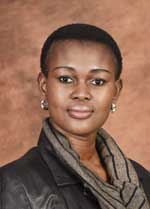By Phumzile Mahlangu
Wednesday, 29 May 2024 marks the country’s seventh democratic election. To ensure that South Africans have sufficient time to make their way to the polls to have their vote counted President Cyril Ramaphosa has declared a special public holiday.
Government calls all eligible voters especially young people to go out in numbers to vote on that day, as the active participation of all eligible voters is central to strengthening our democracy. Your vote gives you the power to change or improve things and allows you to choose who will represent the interests of your community.
The elections is against the backdrop of the commemoration of 30 years of Freedom. The commemoration provides us with an opportunity to reflect on how our lives have changed since the oppressive days of Apartheid when the majority of South Africans were denied the right to vote, denied access to basic services, denied access to education, denied access to marry across racial lines, denied freedom of speech and media freedom, denied access to public spaces, and denied free movement.
Since 1994, our developing democracy has succeeded in holding free and fair elections which is a demonstration of our strengthening democracy to hold regular elections. We now live in a country where citizens and various institutions of democracy hold the state accountable to ensure that indeed we are a country which belongs to all who live in it!
As a nation that has successfully held free and fair elections which have upheld people’s democratic right to elect their preferred public representatives.
President Cyril Ramaphosa, officially proclaimed and gazetted the 29th of May as Election Day. He consulted with the Independent Electoral Commission (IEC) as well as with all nine provincial Premiers on the state of readiness for the General Elections, before announcing the date of 29 May 2024.
The IEC also embarked on a two voter Registration drives which resulted in the voters’ roll now standing at over 27 million voters. The voters’ role is now officially closed and no one can register to vote or make changes to the voters roll.
The right to vote should never be taken for granted. It is a right that many fought and died for and was only achieved because of countless acts of bravery and courage by people who refused to cower under the tyranny of the apartheid regime or be bystanders to history. Therefore, we owe it to them and to ourselves and our future generations to make sure that we register to vote and have a say on the future direction of the country.
Phumzile Mahlangu is Assistant Director: Communication Resource Centre at GCIS

